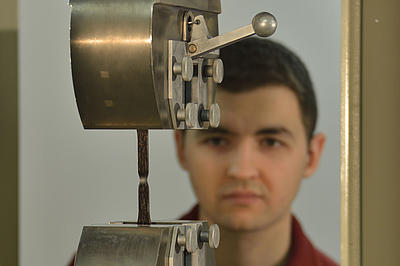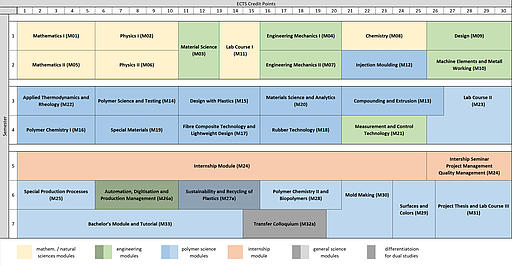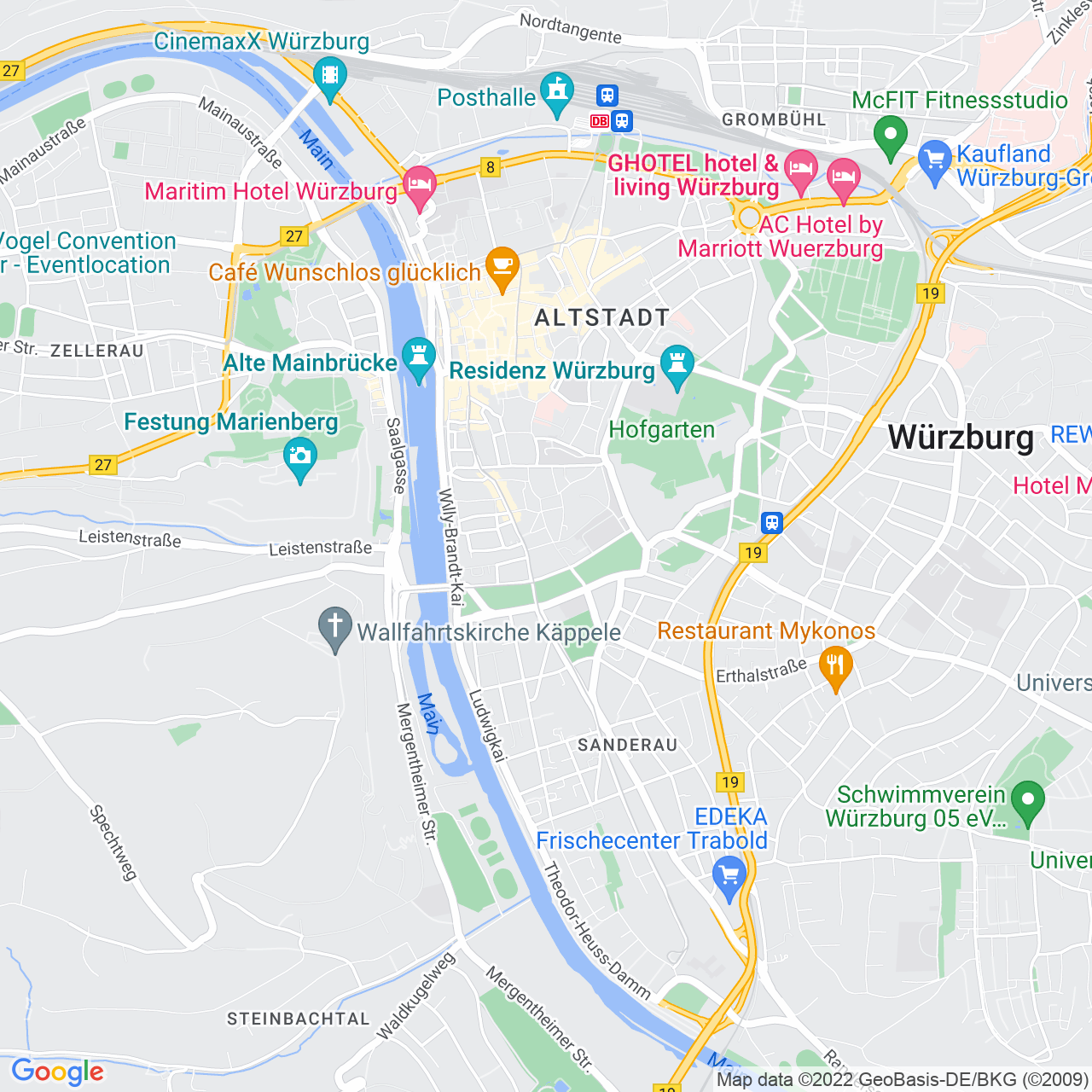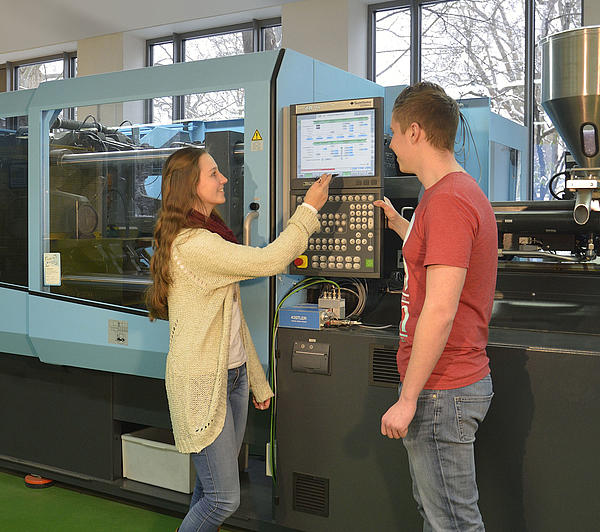Applied Polymer Engineering Programme - Shape a sustainable future!
The aim of the Applied Polymer Engineering degree programme is to train independent and responsible engineers who use the technical potential of plastics and elastomers intelligently and shape a sustainable future with them.
With a mixture of theoretical lectures and in-depth practical exercises on modern equipment and machines, students gain a solid, comprehensive knowledge that enables them to work in any area of plastics and/or elastomer technology - depending on their personal interests.
dual study programme of Applied Polymer Engineering – an additional option!
The idea behind the dual study programme is to enable students to gain additional practical experience alongside their university education, with all parties involved - the companies, the students and the university - benefiting from this model.
In the dual study programme, students conclude an agreement with a partner from the private sector that they will work for the company during their studies (during the lecture-free period) and usually also afterwards. In return, the company bears part of the costs of the degree programme or finances it in full. In the dual study programme, more reference is made to practical experience, e.g. in examinations.
Overview of the programme
Degree: Bachelor of Engineering (B.Eng.)
Language of instruction: English
Standard period of study: 7 semesters
Start: Winter semester
Place of study: Würzburg
Diploma Supplement: yes
Costs / Tuition fees: no
Study programme
The Bachelor's degree programme in Applied Polymer Engineering comprises 7 (6 theoretical and 1 practical) semesters of study.
The first part of the programme, known as the foundation course, consists of two theoretical semesters. In this phase, the student is taught basic mathematical, scientific and engineering knowledge and thus lays the foundation for an in-depth engineering education. They also have the opportunity to gain their first practical experience in the working world as part of a pre-study work placement.
The rest of the programme consists of four theoretical semesters and one practical semester. Here, the student is offered mainly plastics and elastomer-specific lecture subjects. To consolidate the lecture content and exercises, numerous laboratories are available for important subject areas, in which the student has the opportunity to carry out practical experiments independently. Every student has to complete a various number of such compulsory lab courses during lectures. This ensures that what is learnt in theory is underpinned by practical experience.
The practical semester (as the 5th semester of study) must be completed in an industrial company. It serves to familiarise the student with engineering work in a company in the plastics or elastomer industry.
This is followed by two further theory semesters. At the end of the programme, the student completes a Bachelor's thesis, which is intended to demonstrate their ability to work independently and in an engineering manner.
The general engineering range of subjects (e.g. measurement and control technology, design and machine elements, engineering informatics, etc.) provides students with a solid engineering education that enables them to communicate on an equal footing with engineers from other disciplines and to familiarise themselves with peripheral areas of their actual field of activity in a short space of time. Through non-engineering subjects (e.g. English for engineers and business administration), which are also firmly anchored in the curriculum, the plastics engineer is also equipped for international tasks in terms of communication and can apply business management skills.
Basic study programme (1st and 2nd semester): Mainly basic science and engineering modules, laboratory and practical module, first module in plastics technology
Main study programme (3rd and 4th semesters): Plastics and elastomer technology modules, engineering modules, technical modules, laboratory and practical module
Practical semester (5th semester)
Specialisation course (6th and 7th semesters): Plastics and elastomer technology modules, technical and business modules, project work and laboratory/practical module
Bachelor's thesis (7th semester)
Best career opportunities
Plastics and elastomer technology is a cornerstone of today's and tomorrow's key technologies for mobility, health and leisure.
The demand for engineers in plastics and elastomer technology is correspondingly high, so that a good degree opens up excellent career opportunities. This is particularly true for graduates of universities of applied sciences, as their highly practical training is particularly recognised and sought after by industry. This demand will also considerably exceed the supply of graduates in the foreseeable future, which will secure career entry and development opportunities in the long term.
Polymer materials have a wide range of applications and their importance continues to grow. A graduate can work in a correspondingly wide range of fields. This ranges from material production to processing and application and includes all important sectors such as automotive, aerospace, mechanical and electrical engineering, sports and leisure equipment, medical technology and environmental protection. Depending on individual inclinations, the extensive foundation provided by the university education enables graduates to work in development and design, production or sales - at both specialist and management level.
As diverse as the possible applications of plastics and elastomers are, so too are the possible occupational fields of our graduates:
- Mechanical and apparatus engineering
- Vehicle and shipbuilding
- Aerospace engineering
- Environmental protection
- Synthetic chemistry
- Medical technology
- Packaging industry
- Polymer analysis
- Sports and leisure equipment industry
- etc.
Admission
The prerequisite for admission to the Applied Polymer Engineering degree programme is proof of
a) the general higher education entrance qualification,
b) the subject-restricted higher education entrance qualification or
c) a higher education entrance qualification as defined in Art. 45 of the Bavarian Higher Education Act
More information on the general and programme-specific admission requirements can be found on the following pages:
Persons with a German university entrance qualification: University Service Studies >
Persons with a foreign higher education entrance qualification: International Office >
Application deadlines / Application procedure
Application deadlines for Winter semester: 1 April up to and including 15 June








